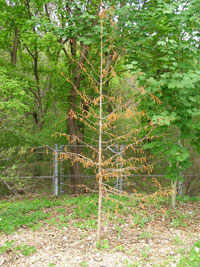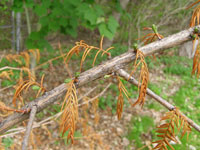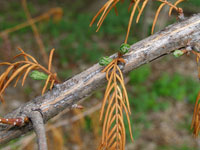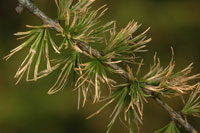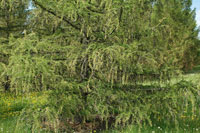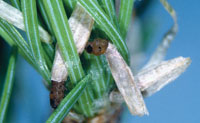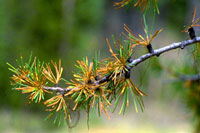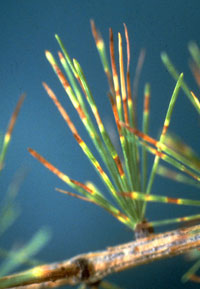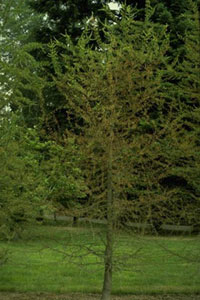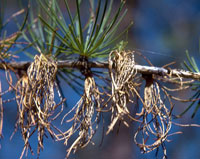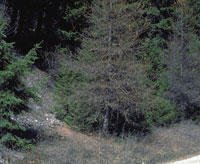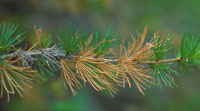Extension > Garden > Diagnose a problem > What's wrong with my plant? > Evergreen trees and shrubs > Larch / Tamarack > Needles yellow to brown
Larch / Tamarack > Needles yellow to brown
1 of 4
Fall needle drop
- Deciduous needles turn yellow and fall off in autumn
- Not insect or disease related, normal for larch trees
- New needles emerge in spring
2 of 4
Larch casebearer
Coleophora laricella
- Larvae construct a cigar-shaped case that is suspended from branch buds appearing like dead needles
- Browned or parched appearance of the needles from larvae feeding or mining leaf contents
- Needles of heavily infested trees wither and die
- All Minnesota Larch species are susceptible
3 of 4
Larch needle cast
Meria laricis
- First see yellow spots or bands on needles that turn reddish brown
- Next entire needles turn yellow than reddish brown and fall off
- Disease appears suddenly in wet spring weather
- Not serious in mature trees but can kill seedlings
- Currently found in WI, status in MN unknown
- More information on Larch needle cast
4 of 4
Larch needle blight
Hypodermella laricis
- Young needles turn reddish brown and wilt
- Brown to gray killed needles remain attached to tree for 1-3 years
- Upon close examination, small black ovals can be seen on dead needles
- Occurs in wet spring weather
- More information on Larch needle blight



